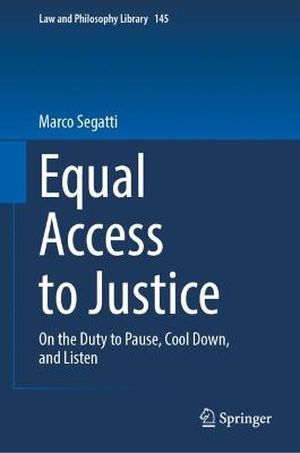
It is wrong when someone cannot exercise their rights in a court of law because they have no money to pay for a good lawyer, because they are too scared of the possible consequences, or because they simply don't know that the law protects them. But does that mean governments have an obligation to intervene? And if so, how? This book provides the first systematic philosophical theory of equal access to justice. It begins by identifying the content of claims to equal access to justice. Then, it reviews traditional political and legal arguments on the right of access to justice, which it argues are both illuminating and insufficient. The best comparative way to approach equal access to justice, the book argues, is to think through the requirements of a moral, pre-political, duty to - at times and provisionally - pause, cool down and listen: in other words, we ought to demand that governments step in and protect access rights, because we have a moral and pre-political interest in cultivating our ability to comply with this duty. It is the recognition of this duty which best explains both law's potential for promoting, as well as its potential for endangering, equal justice. In closing, the book tests this novel theory of equal access to justice against contemporary trends and reforms in procedural law.